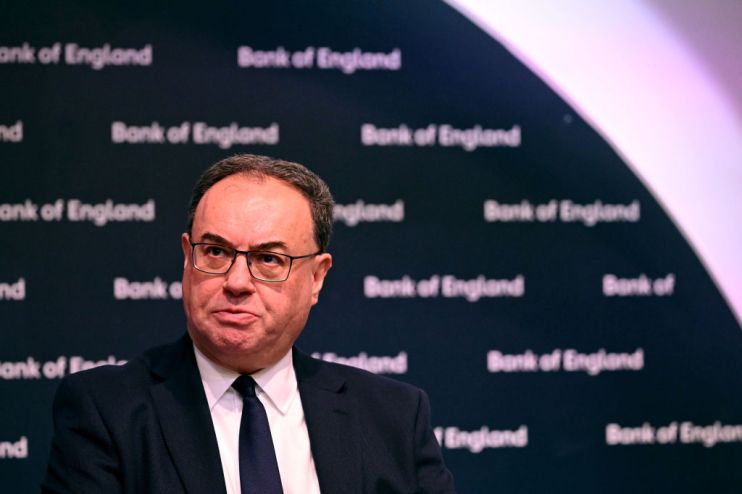Andrew Bailey: Our banks are sound – we’ll keep hiking if inflation persists

The Bank of England will be forced to jack up interest rates again if incoming data shows inflation is not falling fast enough in response to the central bank’s eleven straight rate rises, Governor Andrew Bailey said today.
Further pain will be needed to be borne by families and businesses if price pressures keep pinning down the UK economy, Bailey, 63, said at a speech hosted by the London School of Economics.
After last week’s 25 basis point rise to 4.25 per cent – a post-financial crisis high – economists had roundly interpreted the rise as the Bank’s last in its aggressive tightening cycle.
However, Bailey signalled the Bank is still “very alert to any signs of persistent inflationary pressures”.
“If they become evident, further monetary tightening would be required,” he cautioned.
The Governor said that any future rate rises “will be firmly anchored in the emerging evidence”, hinting the Bank will react to higher than expected inflation figures.
While experts reckon the rate of price increases is on course to drop sharply this year, likely to somewhere around the Bank’s two per cent target by Christmas, there are signs underlying price pressure are hanging around.
Interest rates have risen rapidly to tame inflation

Core inflation – a more accurate measure of domestic price dynamics that strips out food and energy products – kicked higher to 6.2 per cent last month.
Core services inflation, the measure that has drawn the MPC’s closest attention of late, actually came in lower than the Bank expected last month, although that didn’t prevent rate setters from raising borrowing costs again last week.
Bailey said a combination of supply chains gumming up after countries emerged from Covid-19 curbs and Russia’s invasion of Ukraine propelling international energy prices has made the UK poorer.
“I am afraid that monetary policy cannot make the shocks to our national real income go away,” he said.
“But what monetary policy can – and must – do is to make sure that the inflation that has come to us from abroad does not become lasting inflation generated at home,” the former Financial Conduct Authority chief added.
Markets have trimmed their peak rate expectations for the Bank and the US Federal Reserve in recent weeks, betting monetary authorities are weary of piling more pressure on the global banking system after Credit Suisse and Silicon Valley Bank’s failure.
“We believe the UK banking system is resilient, with robust capital and liquidity positions, and well placed to support the economy,” Bailey said.
German banking giant Deutsche Bank regained some of last Friday’s sharp losses today, finishing up around six per cent.
London listed banks also notched decent days, helping the FTSE 100 index to a 0.9 per cent gain.